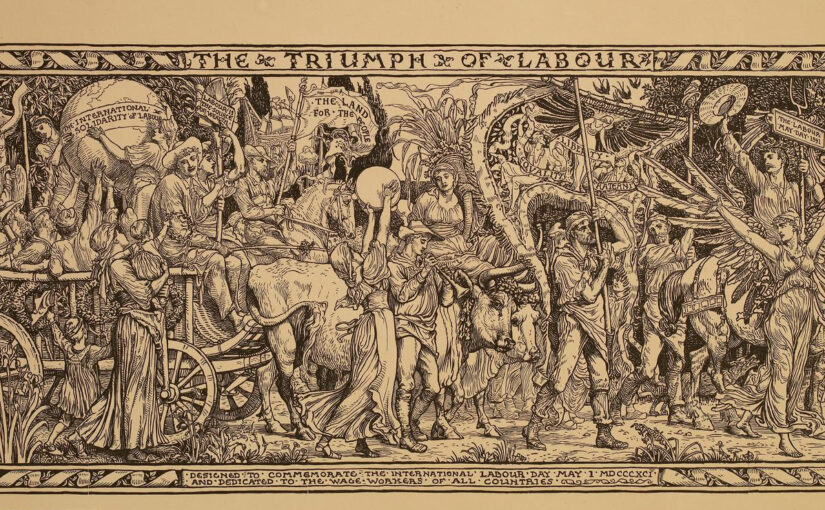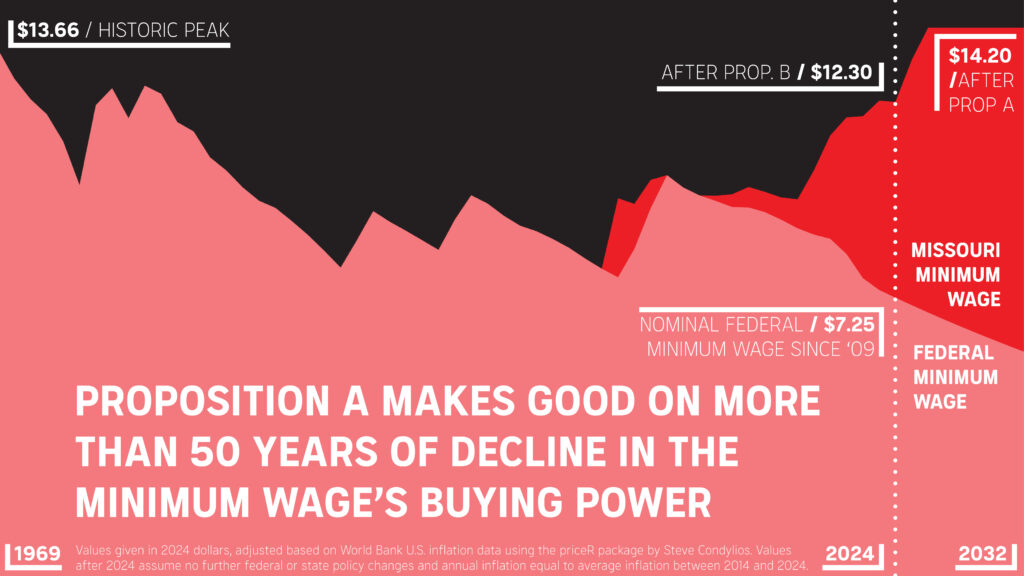Mid-Missouri DSA’s logo is a red rose, a historic symbol of democratic socialism and social democracy, in a crown over the slogan “The New Dynasty.” The New Dynasty is the title of a remarkable address by Mark Twain to the Hartford Monday Evening Club in 1886. Mark Twain’s politics were not constant over the course of his career, though it’s possible to identify some themes: for instance, a belief in the almost unquestionable right to violent agitation against the existing order, or summary execution of people who violate an author’s copyright.
Between hearing Congressional testimony from a member of the Knights of Labor (he was there to complain about foreign infringement of his copyright) and his delivery of “The New Dynasty,” Twain believed that the dictatorship of the proletariat and expropriation of the expropriators was an inevitable and just result of increasing industrial development, specialization of labor, and the rising labor movement. Some quotes:
“Who are the oppressors? The few: the king, the capitalist, and a handful of other overseers and superintendents. Who the oppressed? The many: The nations of the earth; the valuable personages; the workers; they that make the bread that the soft-handed and the idle eat. Why is it right that there is not a fairer division of the spoil all around? BECAUSE LAWS AND CONSTITUTIONS HAVE ORDERED OTHERWISE. Then it follows that if the laws and constitutions should change around and say there shall be a more nearly equal division, THAT would have to be recognized as right. That is to confess, then, that in POLITICAL SOCIETIES, IT IS THE PREROGATIVE OF MIGHT TO DETERMINE WHAT IS RIGHT; that it is the prerogative of Might to create Right — and uncreate it, at will. It is to confess that if the banded voters among a laboring kinship of 45,000,000 of persons shall speak out to the other 12,000,000 or 15,000,000 of a nation and command that an existing system of rights and laws be reversed, that existing system has in that moment, in an absolutely clear and clean and legal way, become an obsolete and vanished thing — has utterly ceased to exist, and no creature in all the 15,000,000 is in the least degree privileged to find fault with the act.”
“There was a time for sneering. In all the ages of the world and in all its lands, the huge inert mass of humbler mankind — compacted crush of poor dull dumb animals — equipped from its centre to its circumference with unimaginable might, and never suspecting it, has made bread in bitter toil and sweat, all its days for the feeble few to eat, and has impotently raged and wept by turns over its despised households of sore-hearted women and smileless children — and that was a time for sneering. And once in a generation, in all ages and all lands, a little block of this inert mass has stirred, and risen with noise, and said it could no longer endure its oppressions, its degradation, its misery—and then after a few days it has sunk back, vanquished, mute again, and laughed at—and that also was a time for sneers. And in these later decades, single mechanical trades have banded themselves together, and risen hopefully and demanded a better chance in this world’s fight; and when it was the bricklayers, the other trades looked on with indifferent eye — it was not their fight; and when this or that or the other trade revolted, the ten millions in the other trades went uninterested about their own affairs — it was not their quarrel; — and that also was a time to sneer — and men did sneer. But when ALL the bricklayers, and all the bookbinders, and all the cooks, and all the barbers, and all the machinists, and all the miners, and blacksmiths, and printers, and hod-carriers, and stevedores, and house-painters, and brakemen, and engineers, and conductors, and factory hands, and horse-car drivers, and all the shop-girls, and all the sewing-women, and all the telegraph operators: in a word, all the myriad of toilers in whom is slumbering the reality of that thing which you call Power, not its age-worn sham and substanceless spectre, — when these rise, call the vast spectacle by any deluding name that will please your ear, but the fact remains, a NATION has risen!”
“Without his education, he had continued what he was, a slave; with it, he is what he is, a sovereign. His was a weary journey, and long: the constellations have drifted far from the anchorages which they knew in the skies when it began; but at last he is here. He is here, — and he will remain. He is the greatest birth of the greatest age the nations of this world have known. You cannot sneer at him—that time has gone by. He has before him the most righteous work that was ever given into the hand of man to do: and he will do it. Yes, he is here; and the question is not — as it has been heretofore during a thousand ages — What shall we do with him? For the first time in history we are relieved of the necessity of managing his affair for him. He is not a broken dam this time — he is the Flood!”
It’s hard to argue with this vision from a socialist perspective (funnily enough, Twain says one of the advantages of the unchallenged rule of the working class is that it will make socialists, anarchists and communists obsolete – a deal I think any self-respecting socialist would have to accept).
It’s not possible to extract a consistent political program from Mark Twain’s writing and life, taken as a whole (though people love to try). But “The New Dynasty”, alongside his writings against imperialism or his statement that “I am always on the side of the revolutionists, because there never was a revolution unless there were some oppressive and intolerable conditions against which to revolute” stand as proof that a radical vision of a better world is not foreign to the American tradition. Missouri’s most famous son was able to identity the possibility of a better world, built by the political power of the working class. Our logo memorializes this prophecy.
For a brief treatment of Mark Twain’s left-wing sympathies, see this piece by Jacobin. Phillip Foner’s Mark Twain: Social Critic is a book-length treatment of Twain’s progressive commitments on labor, imperialism, and other issues.






